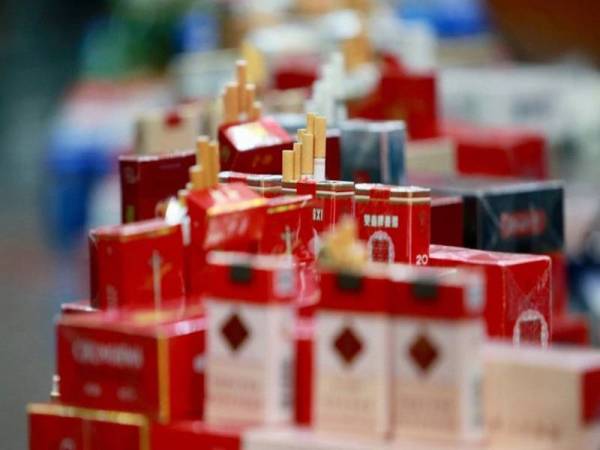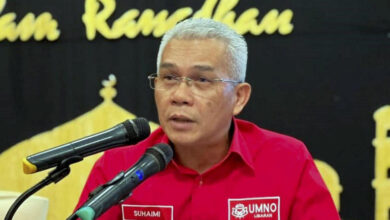Shocking Smoking gun: Malaysia world centre of illegal cigarette trade
 Despite its relatively small population of 32 million, Malaysia holds the unenviable distinction of accounting for more than half of the global sales of illegal cigarettes last year.
Despite its relatively small population of 32 million, Malaysia holds the unenviable distinction of accounting for more than half of the global sales of illegal cigarettes last year.
With an estimated total of 12 billion sticks of illicit cigarettes sold last year, Malaysia makes up a staggering 62 percent of worldwide sales of illegal cigarettes in 2019.
Japan Tobacco International (JTI) Malaysia managing director Cormac O’Rourke said as a result, Malaysia lost an estimated RM5 billion in taxes.
“Malaysia is a case study of what can go wrong and how ill-conceived taxation and regulatory policies create a perfect opportunity for illegal cigarettes to boom.
“For every 10 cigarettes in Malaysia, six are smuggled cigarettes,” he told a panel discussion at the Global Tobacco and Nicotine Forum recently.
He said while Malaysia is affected only by the sale of contraband cigarettes and not counterfeit ones, the wide price gap between legal and contraband items can be attributed to the high excise duty.
“The price of legal cigarettes in Malaysia is the third highest in this region, enabling the country to become a natural target for smugglers,” he said.
O’Rourke believes that tax reductions would not address the problem of illegal cigarettes despite the huge price gap between legal and illicit nicotine products.
He said the government’s move in 2015 to increase the excise tax to 40 percent led some smokers to turn to the black market for cheaper cigarettes.
Smuggling activities, he claimed, have been on the rise since then.
He called for solutions such as a stable tax environment, an excise tax moratorium, a policy environment that addresses the illegal trade and a ban on transhipped cigarettes.
HOW COVID-19 AFFECTED THE TOBACCO INDUSTRY
O’Rourke said despite tighter enforcement during the Movement Control Order (MCO) period to contain the Covid-19 pandemic, smugglers nevertheless found ways to continue the sale of illicit cigarettes by going online.
“They found new ways to sell online by offering to deliver cigarettes to the doorstep of buyers by using e-hailing and food delivery services.
“There has been a strong resurgence in the sale of illicit cigarettes online, based on the latest data from our Illicit Cigarettes Study, which indicates that they now account for about 62 percent of the total cigarette sales in Malaysia,” he said.
The sale of contraband cigarettes, he said, has hit the tobacco industry hard and would heavily impact the industry’s 500,000 jobs if illicit tobacco sales were allowed to continue.
In addition to contraband cigarette sales, O’Rourke said the legitimate tobacco industry has faced operational issues since the MCO such as supply disruptions.
“During this period, it is estimated that the losses to the country in uncollected tax revenues reached approximately RM1 billion.
“The uncollected tax revenue equals the production of 2.5 billion sticks of legitimate products that were disrupted.”
STRICTER ENFORCEMENT NEEDED
Tobacco industry players have long called for stricter enforcement after the tabling of the 2020 Budget last year.
JTI Malaysia said among the measures suggested included the establishment of an independent body to lead a special task force on addressing illegal cigarette sales, a ban on transshipment of cigarettes, as well as a further two-year moratorium of tobacco excise increase.
O’Rourke said tobacco industry players had proposed various measures such as a ban on transshipment of cigarettes in the country, coupled with having a single port of entry to ease the burden on enforcement agencies.

“The transshipment loophole has been fully exploited by criminals with the assistance of corrupt local officials, resulting not only in failure to pay duty on the products but also a diversion to the Malaysian black market.
“An excise tax increase moratorium should be introduced until such a time as the state of the legitimate tobacco industry improves to allow enforcement efforts to take hold and to ease the affordability of legal tobacco products for consumers,” he said.
POSSIBLE TERRORISM LINKS
Shane Britten, chief executive officer of Crime Stoppers International, commented on the possibility that the sale of illicit cigarettes could also be used to fund terror activities.
“One case study discussed the possibility of it being used to fund terrorism, which makes it a prime homeland security issue worldwide and not just a particular region.
“If the money from the illicit trade of these products is used to fund terrorism, it is our responsibility to stamp it out,” he said.
Another panelist, excise fraud consultant Howard Pugh, agreed that the people have to be educated on what they are buying and its effects.
“I believe there are not enough resources and enforcement in getting the public to understand that they contribute to the problem.
“Authorities need to understand that there is not enough effort done to raise public awareness,” he said.
MALAYSIA’S STEPS TO COMBAT SMUGGLING OF ILLICIT CIGARETTES
On Sept 15, Deputy Finance Minister II Mohd Shahar Abdullah told the Dewan Negara that the Multi-Agency Task Force (MATF) has been revived and strengthened with the addition of agencies such as the National Security Council, National Kenaf and Tobacco Board, and the Malaysian Anti-Corruption Commission.
The MATF committee was set up by the Customs Department to coordinate the activities of all enforcement agencies to combat the smuggling of cigarettes and liquor.
The Customs Act 1967 and the Excise Act 1976 were also amended last year, bringing with it a minimum fine of RM100,000 against smugglers, distributors, suppliers, and sellers of contraband cigarettes.
Between 2016 and August this year, the Domestic Trade and Consumer Affairs Ministry had recorded 63 cases for related offenses made under the Trade Act (26) and Price Control and Anti-Profiteering Act (37). Nst
Johor Immigration assistant director nabbed in migrant smuggling probe





You must be logged in to post a comment.